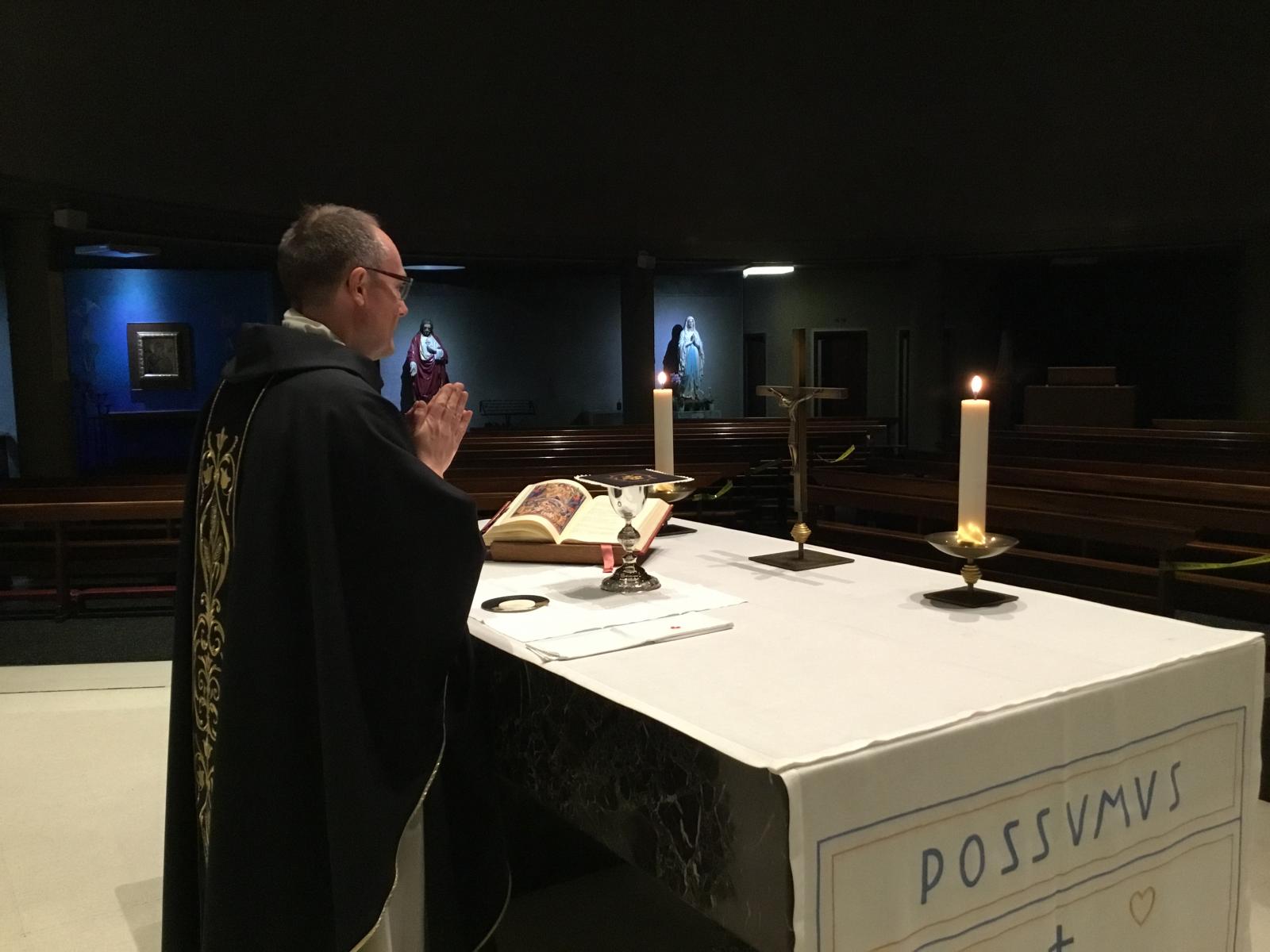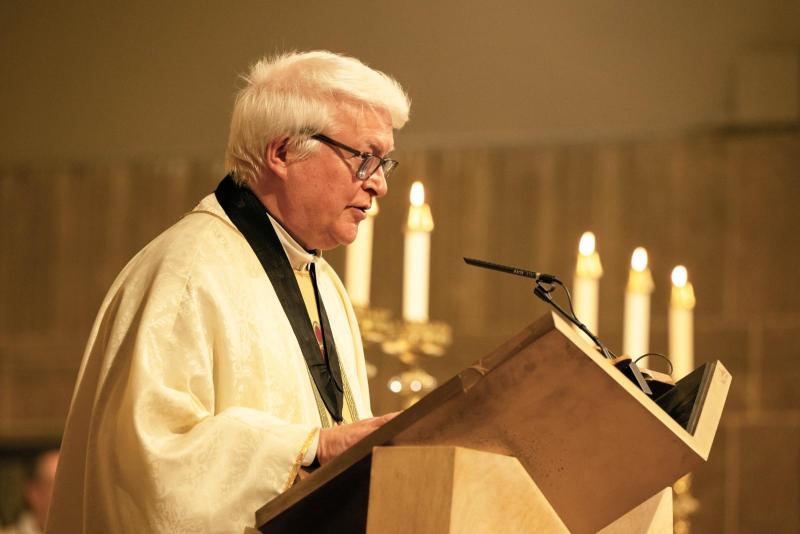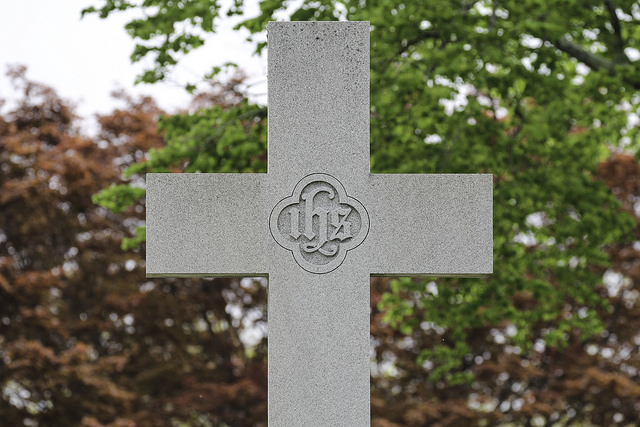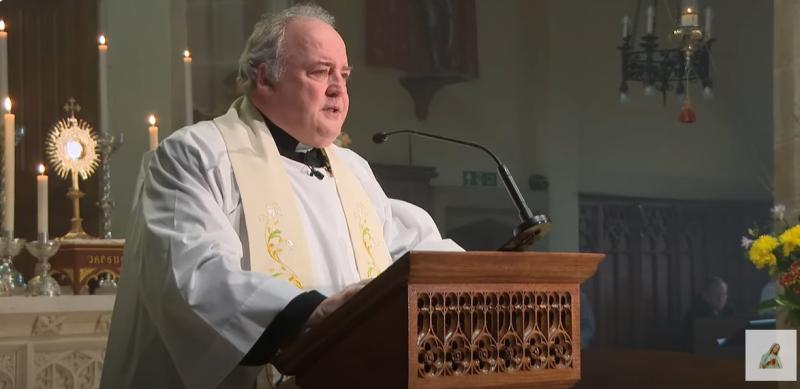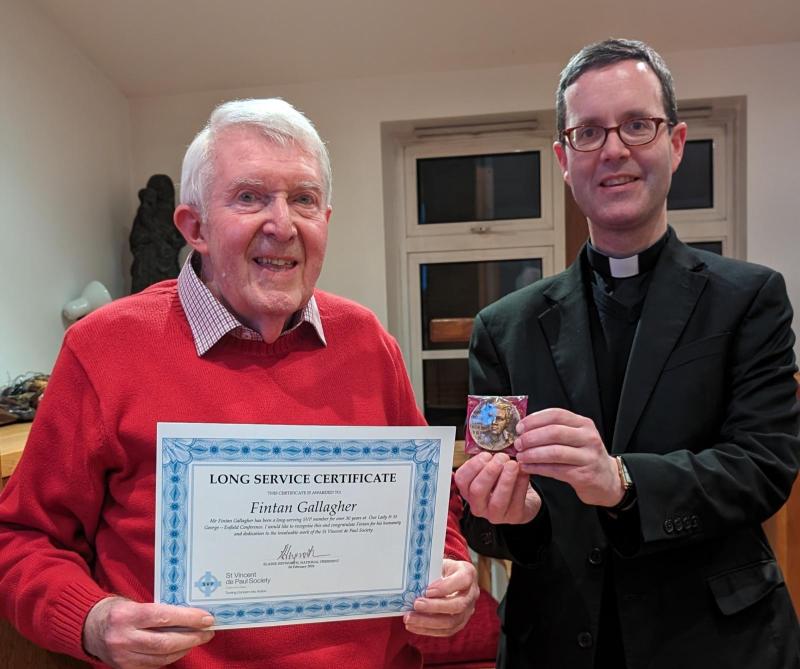By Fr Jeremy Trood, Chancellor and Parish Priest of St Aloysius, Somers Town
All Souls’ Day is one of the two exceptions to the general principle that a priest is not permitted to say more than one Mass a day unless canon law and the liturgical law allow otherwise (the other is Christmas Day). It is a day when it is licit for a priest to celebrate not just one, but three Masses on the same day.
This privilege is a relative innovation. The general indult for priests of the Latin Church to trinate (celebrate Mass three times on the same day) dates only from 1915. The practice had started in the Kingdom of Aragon, extended throughout Spain and Portugal by Benedict XIV in 1748 and then throughout Latin America by Leo XIII in 1897. In 1915, at the beginning of the second year of the Great War, Benedict XV, responding to requests by bishops and faithful from combatant nations, extended this privilege to priests throughout the Latin Church in his Apostolic Constitution Incruentum altaris sacrificium.
The reason Benedict XV gave for this extension was twofold. Firstly, he was concerned by the diminishing income of foundations for Masses for the deceased and secondly, and perhaps more importantly, he wished the Church to come to the aid of the large number of young men who had already been killed, and were still being killed, as the conflict continued. The norms he established for the application of the second and third Masses (which continue to apply today) were that the second Mass was to be offered for the faithful departed and that the third Mass for the intentions of the Holy Father.
The prohibition on priests celebrating Mass more than once a day (except for pastoral reasons) has been part of the law of the Church since at least the eleventh century. The reason for this are to prevent Mass being celebrated for inadequate reasons and for improper (especially financial) motives. Permission to say more than one Mass a day were only given in very restricted circumstance.
In 1973 Paul VI allowed bishops to permit priests to celebrate twice on weekdays (for a just cause) and three times on Sundays and holy days of obligation (where there is a shortage of priests and a true pastoral need). However, the 1967 instruction Eucharisticum mysterium cautions against extending this too far, especially if it places such a burden on priests that it makes it difficult for them to fulfil their ministry adequately.
None of these concerns applies to All Souls’ Day since Incruentum specifies just and pastoral reasons why trination is allowed on that day and, unlike Christmas Day (the other day when trination is licit) when three mass offerings could be accepted by the priest, only one Mass stipend is accepted on All Souls’ Day even if three Masses are offered. Furthermore, the only time when it is licit for a priest to say three Masses on three consecutive days would be when 31st October falls on a Sunday since the following day would be All Saints’ Day (a holy day of obligation) with the day after that being All Souls’ Day. However, in such circumstances many Bishops’ Conferences, including the Bishops’ Conference of England and Wales, have chosen to move the celebration of the holy day to Sunday, thereby reducing the number of Masses which a priest may celebrate over these days. There is no other occasion when days where trination is permitted to occur in such proximity.
Therefore, on All Souls’ Day any priest may celebrate three Masses, even if there is no pastoral necessity for him to do so, provided that the three Masses take place at different times and the second Mass is offered for all the faithful departed and the third Mass for the Holy Father’s intentions.
